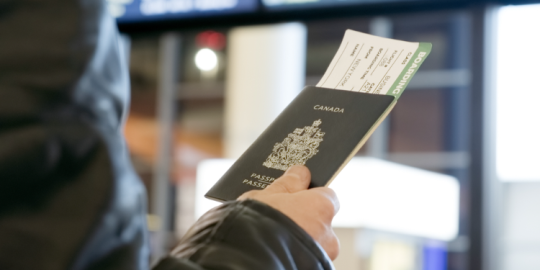How do expats benefit from the flexwork boom?
Known as flexwork or flexiwork, the term encompasses all arrangements that do not adhere to standard working hours. Employers and employees agree on work arrangements, such as the number of hours, workplace, job execution, etc. Thus, flexwork includes remote work and flex office (or flex desk), which are modes of work organization and access to flexibility. For companies, the era is even more flexible than before COVID.
Businesses in Singapore, the United Kingdom, France, Spain, and the United States have integrated these new work organizations. Even in Japan, some companies are testing flexwork. Betting on flexible work increases the chances of attracting foreign talent.
The phenomenon has grown since the health crisis. Lockdowns have revived expatriation projects. While earning a higher income remains a primary reason for moving abroad, it goes hand in hand with a strong desire for freedom, which is precisely the philosophy of flexible work.
Companies increasingly understand this notion of freedom. More and more job offers emphasize the flexibility of the position. Whether expatriates or not, employees no longer want to be mere executors but rather collaborators who define their roles. However, competition can be fierce between local and foreign talents. In Singapore, the flexwork boom favors the recruitment of foreign workers more.
Greater flexibility in Singapore, the United States and the United Kingdom
Will we talk about a "great return of expats" to Singapore soon? Pushed out during COVID and targeted by the executive's policy favoring local employment, expatriates are making headlines again, thanks to flexible work. Companies that embrace flexwork believe that expatriates have several advantages: they can mean cheaper labor than Singaporean workers while being more qualified for the position. Singaporean companies specializing in digital marketing are betting on Malaysian expats. They lament the need for more qualifications among local talent in their industry. Other digital companies also choose flexwork and the employment of expatriates while wishing they received more local resumes that meet their criteria.
In the United States, flexible work has become even more visible since COVID. According to a 2022 study by consulting firm McKinsey & Company, 87% of American workers took the opportunity to work in a flexible way (primarily remote work). According to the firm, flexwork will continue to grow beyond the digital sector and not just among "white-collar" workers. Other data show the rapid progress of flexible work. HRKatha, an HR news specialist, points out that the percentage of American companies offering flexible positions rose from 51% at the beginning of 2023 to 62% in November 2023.
There is a similar interest for flexwork in the United Kingdom. Since April 6 and the reform of the flexible work law, employees can request flexwork from their first day of employment. The reform, which includes other arrangements, is timely. HRD Connect, the leader in online HR publications, reveals that 4 out of 10 Britons no longer even consider applying for a job that is not flexible.
Workplace flexibility: A key issue for expatriates and prospective expats
The freedom afforded by flexwork is a source of motivation for expatriates and prospective expats. For the international labor market, it's a win-win situation, meaning more productivity for companies and more autonomy for workers. Expats are more attached to their companies because they are better able to manage their professional and private lives. Contrary to the fears of proponents of 100% onsite work, flexwork does not diminish loyalty to the company. Empowered, workers become more involved.
However, other aspects of expatriation should not be neglected because each country and company has its own culture. Expatriates must always meet multiple challenges, such as the cost of living, visa fees, recruiting industries, and those recruiting in flexwork. In Singapore, the rising cost of living has been driving expats away. The new increase in the minimum salary required to obtain a work visa, validated by the Ministry of Labour (from January 1, 2025), is another blow for expatriation candidates. The Ministry of Labour welcomes this new measure, which favored local employment. A similar increase has been introduced in the United Kingdom to "filter" foreign applications.
With flexwork, competition increases even further. Some proponents of flexible work go even further and dream of a "world without borders, without an office." All workers would be in competition with each other and could work remotely from anywhere in the world. However, we are still far from this model. It's uncertain whether expatriates and future expatriates would endorse this ultimate version of flexible work.
On the contrary, many move abroad to discover another work culture. Professional enrichment goes hand in hand with personal enrichment.
















